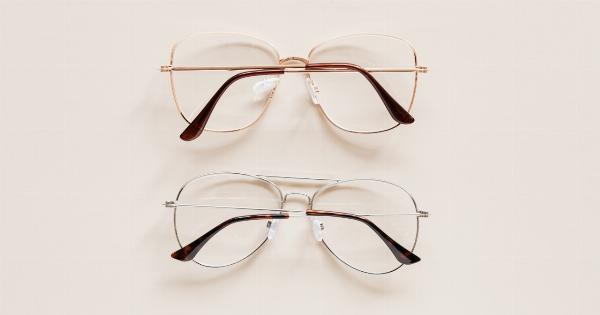Our eyes are one of the most important organs of our body. They allow us to see the beauty of the world and experience different things in life.
However, just like any other body part, our eyes also need proper care and attention to remain healthy and functional. Here are ten simple tips that can help you maintain healthy eyes:.
1. Get Regular Eye Check-Ups
It’s essential to get regular eye check-ups even if you don’t have any visible eye problems.
Eye exams can detect common vision issues such as nearsightedness, farsightedness or astigmatism and it can also detect eye diseases like glaucoma, cataracts, and macular degeneration early when they’re still treatable. It’s recommended to have a comprehensive vision exam annually for people over the age of 60 and every 2 years for younger people.
2. Protect Your Eyes from UV Rays
Exposure to UV rays can damage your eyes over time, and it can increase the risk of developing cataracts and other eye diseases.
When you’re going outside in the sun, it’s essential to wear protective sunglasses that block both UVA and UVB rays. The sunglasses should be worn even on overcast days because UV rays can penetrate through clouds.
3. Follow a Healthy Diet
A healthy diet is essential not only for your body but also for your eyes. Certain nutrients like vitamins A, C, E, and minerals like zinc are crucial for eye health. Foods like leafy green vegetables, fruits, nuts, and fish are rich in these nutrients.
Incorporate them into your diet to maintain healthy eyes.
4. Maintain a Healthy Weight
Obesity can lead to an increased risk of developing chronic diseases like diabetes and high blood pressure, which in turn can result in vision loss.
Maintaining a healthy weight can reduce the risk of such diseases, and it’s also beneficial for overall health. Incorporate a nutritious diet and regular physical activity to maintain a healthy weight.
5. Stop Smoking
Smoking is injurious to health, and it’s also bad for your eyes. Smoking can increase the likelihood of developing cataracts, macular degeneration, and optic nerve damage, which can lead to blindness.
Quit smoking to maintain healthy eyes and overall health.
6. Limit Screen Time
Constantly staring at screens like computers, smartphones, and TVs can lead to digital eye strain, which can cause eye fatigue, headaches, and dry eyes.
It’s recommended to follow the 20/20/20 rule wherein you take a break every 20 minutes, look at something 20 feet away, and focus for 20 seconds. It’s also essential to adjust the screen’s brightness, contrast, and font size to prevent eye strain.
7. Use Proper Eye Protection
When you’re undertaking any task that has the potential to cause eye injury, it’s essential to wear proper eye protection. For example, when you’re playing a sport like basketball or tennis, wear protective eyewear.
Similarly, when you’re doing any DIY home project like hammering or painting, use goggles to protect your eyes from debris or dust.
8. Keep Your Eyes Moisturized
Dry eyes can be uncomfortable and irritating, and it can also increase the risk of eye infection. To keep your eyes moisturized, blink frequently, especially when you’re using screens or reading.
Also, use lubricating eye drops if you feel dryness or irritation in your eyes.
9. Take Breaks During Long Drives
Driving for long durations can put stress on your eyes, leading to eye fatigue and dryness. Taking breaks during long drives can refresh your eyes and prevent such symptoms.
Additionally, it’s essential to adjust the seat position, avoid glare, and wear sunglasses during bright daylight drives to reduce the risk of eye strain.
10. Practice Good Hygiene
Practicing good hygiene can prevent the spread of eye infections and diseases. Avoid touching your eyes with unclean hands, and wash your hands frequently with soap and water.
Additionally, clean your contact lenses and contact lens case regularly, and avoid wearing contact lenses while swimming.





























